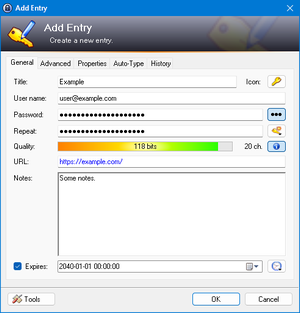marko
Give me a museum and I'll fill it. (Picasso) Give me a forum ...
- Joined
- Mar 16, 2011
- Messages
- 8,464
I got that. With LastPass, when you visit a website and log in with your username and password, LastPass has a drop down window that asks if you want to save that info. You click yes and that entry is saved. When you return to that website, LastPass will automatically fill the login info, you just click enter.
This is also an automatice feature for those using Chromebooks (and Chrome in general I suppose?). Same thing: log in and a drop down asks if you want to save it. Also recognizes if you change the PW later on.
The benefit here is that even if I log in on someone else's/library computer all my PWs are there for my use but gone after I log out.


